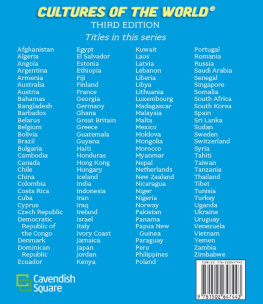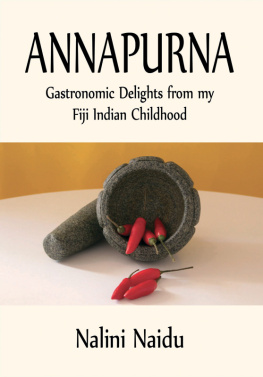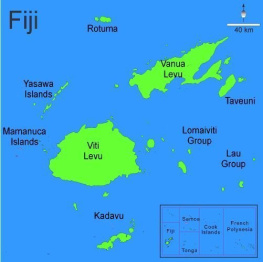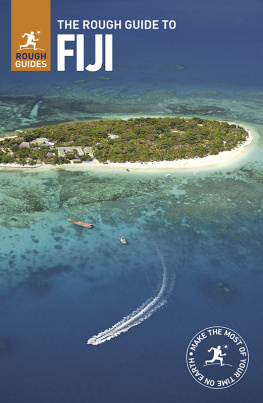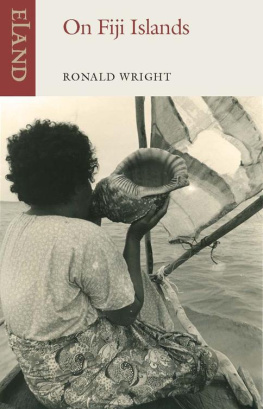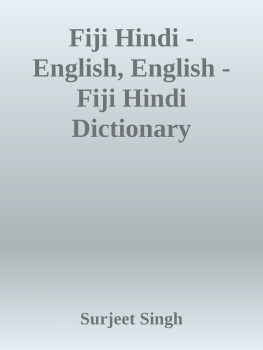Robert Norton is a senior lecturer in Anthropology and Comparative Sociology in the School of Behavioural Sciences at Macquarie University. He has been a student of Fijis political development since 1966. Dr Norton has also researched social change and leadership at the village level in Western Samoa and the social consequences of industrial employment in the Kingdom of Tonga. His theoretical interests include especially the politics of ethnicity and the comparative study of power and inequality.
Preface
The central arguments of Race and Politics in Fiji were confirmed a decade after publication by the events of 1985-87. I had focused on how the indigenous Fijians concern for their political power might be separated from political action on economic and social interests common to many people of both major ethnic populations. I was concerned with the conditions in which class might become important in political competition. The Labour Party experiment, its initial successes, and its failure after the toppling of Ratu Mara dramatically underlined the importance of this issue. I had suggested that a strongly inter-ethnic political organisation would succeed only by accommodating general economic and social welfare issues with the more politically potent ethnic concerns and not by seeking to submerge the latter as some political activists and Marxist writers have proposed.
My interest in the problem grew from an understanding of Fiji as a society in which a variety of factors actually or potentially condition political consciousness and solidarities: Fiji as a sort of force field of different action potentials in mutual tension. In addition to race and class there is region. The emphasis I gave to regional differences and inequalities was to some extent vindicated by the significance of old resentments of Fijians of western Viti Levu toward Fijians of the east during the election and the military coups of 1987. Indeed one of the main consequences of the military intervention has been the strengthening of an eastern Fijian hegemony that has its roots in pre-colonial times and was consolidated under colonial rule. The regional divisions and jealousies continue to be a powerful force in the present crisis, not just between west and east but perhaps more importantly now between the main island Viti Levu and the eastern islands.
I have tried in the introductory and concluding chapters to advance an interpretation of aspects of the contemporary situation in terms of some ideas about the nature of ethnic relations in Fiji which I put forward in the first edition of the book and developed since in my thinking about ethnic conflicts and politics in other post-colonial societies such as Sri Lanka, Malaysia, and Guyana. In developing comparisons in the earlier work I argued that several features have distinguished the control of ethnic conflict in Fiji: an institutionalisation of the division, the negotiability of the everpresent issue of land, and factors sustaining the unity of Fijian political leadership. My new examination in Chapter 1 of the case of Sri Lanka and its implications for our understanding of Fiji builds on this perspective. The analysis has been influenced particularly by the work of the late Chandra Jayawardena and by some of the writings of Pierre Bourdieu in addition to my own theorisation about the politics of ethnic relations over a period of twenty years.
The argument is developed with reference to some general questions about the nature of cultural constructions of ethnic identity. How is the process connected with routine life? Is identity regularly affirmed and bounded by the ideals and symbols of everyday social relationships and practices? Or does it have a volatile form energised by a tension with the frustrations, disjunctions, and ambiguities of social experience and more productive of militancy toward other groups? A related question concerns the impact political rivalry itself has on the cultural construction of identity, on the volatility of this process and its effects on inter-ethnic relations. To what extent is there a contest within an ethnic group to control the manipulation of cultural resources or capital as the foundation of political dominance? What are the implications of such instability or fluidity for the state of inter-ethnic conflict?
These questions have influenced my thinking about the nature of Fijian ethnic consciousness and organisation in the current political crisis. I contrast Fiji with Sri Lanka to elucidate the issues. The essential idea is that the potential for a volatile antagonistic Fijian ethnicity has been limited and offset by the continuing function of established social and political institutions, particularly those of chiefship, in sustaining for Fijians convictions of identity, worth, and strength. The established structures, cultural discourse, and symbolism have been a force for stability by routinising expressions of ethnic identity and opposition. Processes of acrimonious ethnicity that have precipitated devastating violence elsewhere have had in Fiji a certain redundancy, to the extent that they have appeared at all. Furthermore, the old social and political structures in which Fijian ethnic identity has been secured were tied in with the process of accommodation with Indians, particularly in connection with managing the chronic problem of land. These issues, explored mainly in chapters 1, 3, and 7, ultimately concern the deep structure of society and politics in Fiji.
For the most part, however, the book retains an empirical emphasis. My original project was something quite new in the study of Fiji: an analysis of the society as a whole, its distinctive processes and structures as these conditioned political life, and as political events in turn conditioned them. Until then all scholarly works had focused on one or other of the main racial groups. Indeed at the time of writing Race and Politics was still the only published study of Fiji as a national society.
Readers might be irritated by a seemingly erratic use of the terms race and ethnic throughout the book. My preference is to use only ethnic as this refers to cultural distinctions which are profoundly important in Fiji. As well I have a moral objection to the concept of the sort of immutable human division that the term race signifies. But the prevailing convention in Fiji, in politics, social relations, education, and media is to talk of race. The word refers to an important idea in the general culture of the country, so it is hard to write realistically about Fiji without using it. Yet to have employed only this term would have presented problems in the comparative treatment of Fiji in terms of key issues in social theory. I have tended to use the terms interchangeably.


